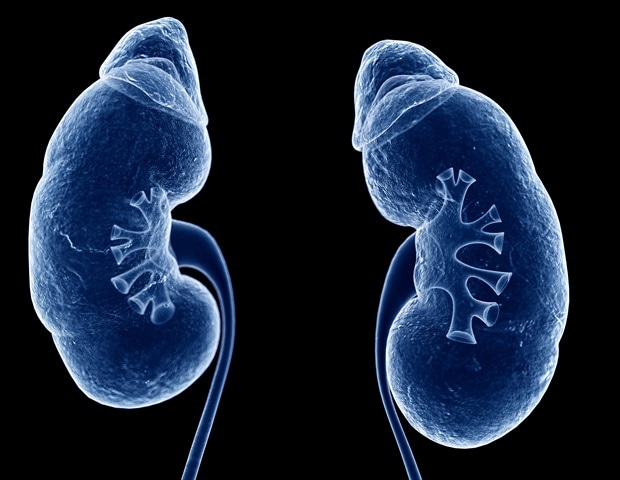In a contemporary assessment printed in Present Opinion in Microbiology, researchers reviewed present knowledge on versions in human microbiota, emphasizing on ageing- and ethnicity-associated adjustments within the microbiota.

Contents
Background
Human microbial heterogeneity lays the basis for precision therapeutics, and thus, the opportunity of customized microbiota-based diagnostic and healing methods can also be tapped totally by means of working out human microbial versions. Then again, the criteria related to alterations within the human microbiome have not begun to be well-characterized.
Additional, lots of the human microbiota knowledge has been bought from citizens of westernized and socioeconomically evolved international locations, with the possible skewing of microbiota versions and their associations with well being. Additionally, the under-sampling of ethnic minorities in microbiota analyses will have to be addressed for assessing the historical past, context, and evolving dynamics of the human microbiota within the context of illness dangers.
In regards to the assessment
Within the provide assessment, researchers highlighted contemporary advances in characterizing human microbiota versions related to aging and more than a few ethnicities globally.
Components that form the human microbiota come with delivery form, circle of relatives sizes, cohabitation, housing, home animals, age, intercourse, bodily health, vitamin, antibiotics, non-antibiotic medication, and alcohol consumption. On the societal degree, complicated associations of well being inequalities, socioeconomic standing, and social networks with the human microbiome steadiness had been reported.
Research have demonstrated an inverse affiliation between the microbiota and a person’s age, and conversely, microbial compositional versions give a contribution to the method of aging and age-associated sicknesses. All people don’t age uniformly, and the differential aging charges replicate within the human microbiota. Due to this fact, the human microbiota abundance is evolving as a biomarker to judge variations within the organic age and chronological age and between well being and illness. Human microbiomes missing Bacteroides species had been strongly related to a wholesome form of aging.
Different points associated with versions within the human microbiota composition
Mediterranean diets, involving lowered consumption of saturated-type fat, pink meat, and milk merchandise, with prime intake of end result, greens, fish, legumes, nuts, and olive oil, had been reported to opposite age-associated microbiota alterations and prolong cognitive decline. Research have reported the co-evolution of human beings and intestinal microbes, with notable versions in Helicobacter pylori range related to human migration.
Microbiome compositions range amongst people dwelling in industrialized or non-industrialized areas. Non-industrialized region-associated microbiomes or ancestral microbes have tailored to metabolizing complex-type carbohydrates from diets with prime fibre content material. The microbial compositions range by means of season, climatic fluctuations, and accessibility to unprocessed-type meals. The microbiome of people dwelling in non-industrialized areas reportedly has decrease Bacteroides/Prevotella spp. ratio, increased counts of Treponema species, and ranging abundance of parasites that impact the immunity of the host.
Naturally maintained palaeofaeces microbiome genomes resemble the genomes of non-industrialized human intestinal microbiota. Socioeconomic trends and industrialization had been related to microbiome range losses, decreased parasitism, lowered counts of ancestral microbes like Helicobacter pylori species and increased counts of microbes related to non-communicable and persistent metabolic and inflammatory sicknesses.
Immigration has been associated with an larger abundance of microbes related to weight problems. A learn about on Irish travellers reported 3 key points influencing the human microbiota composition, i.e., dwelling stipulations, closeness to home pets all through early life and circle of relatives sizes, with the common collection of siblings amongst traveller households and different households being 10, and one, respectively).
Conclusions
In keeping with the assessment findings, the human microbiome is influenced by means of age, vitamin, ethnicity and immigration. Additional analysis is needed to beef up working out of age-related microbiome adjustments to spot objectives and broaden adapted microbiota-based healing interventions. The rise or lower in microbial abundance related to adjustments in nutritional patterns and modernization must be assessed additional to broaden extremely particular precision drugs catered to the residential places and meals fed on.
The co-diversification of microbes with people globally warrants in-depth research of microbial compositions by means of ethnicity, area, vitamin, and industrialization standing to maximise the good thing about microbiota-based interventions to all and sundry. Microbial analyses have been carried out to judge the danger of illness in the case of microbiome dysbiosis and abrupt adjustments following immigration may tell policy-makers and decision-making and assist in creating customized therapeutics to beef up the usual of deal with all people around the globe.
Supply By means of https://www.news-medical.web/information/20230308/Assessment-on-factors-related-to-variations-in-human-microbiota.aspx



